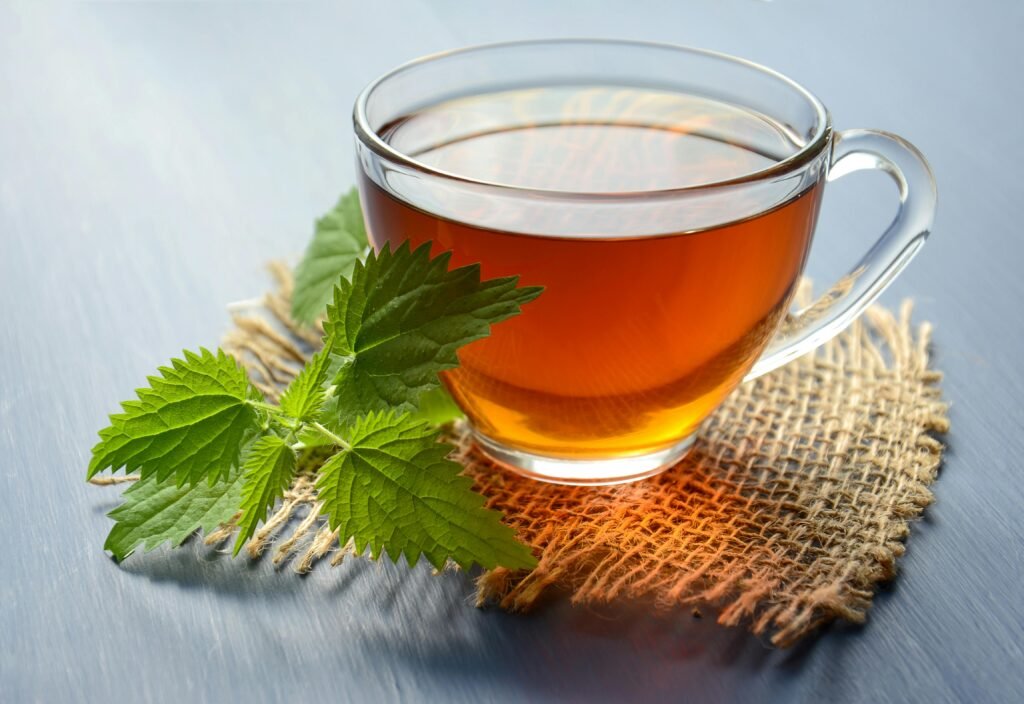Essential oils have been utilized for centuries due to their therapeutic properties, including stress relief. These concentrated plant extracts are recognized for their capacity to promote relaxation, reduce anxiety, and enhance overall well-being. When inhaled or applied topically, essential oils can directly influence the limbic system, the brain region responsible for emotions and memories.
This interaction may help calm the mind, lower stress levels, and foster a sense of peace and tranquility. Research has shown that essential oils can affect the body’s physiological responses to stress. Some essential oils have been demonstrated to reduce cortisol levels, a hormone released in response to stress.
By lowering cortisol levels, essential oils may help decrease blood pressure, reduce heart rate, and promote relaxation. Additionally, many essential oils possess anti-inflammatory and analgesic properties, which can alleviate physical stress symptoms such as muscle tension and headaches. Essential oils offer a natural approach to stress relief, addressing both emotional and physical aspects of stress.
Understanding the potential benefits of essential oils for stress management can enable individuals to utilize these plant extracts to promote relaxation, reduce anxiety, and improve overall well-being.
Key Takeaways
- Essential oils can help relieve stress and promote relaxation through their aromatherapy benefits.
- Lavender, chamomile, and bergamot are popular essential oils known for their calming and stress-relieving properties.
- Creating a calming essential oil blend involves mixing a few drops of different essential oils with a carrier oil like jojoba or coconut oil.
- Essential oil blends can be used in various ways, such as in a diffuser, added to a bath, or applied topically with a massage.
- Incorporating essential oils into your daily self-care routine can help promote overall well-being and reduce stress levels.
Choosing the Right Essential Oils for Calming and Relaxation
Popular Essential Oils for Stress Relief
Some of the most popular essential oils for stress relief include lavender, chamomile, bergamot, and ylang-ylang. Lavender essential oil is renowned for its calming and soothing properties, making it an ideal choice for promoting relaxation and reducing anxiety.
Properties and Benefits of Each Oil
Chamomile essential oil is another excellent option for stress relief, as it has a gentle and calming effect on the mind and body. Bergamot essential oil is often used to uplift the mood and reduce feelings of tension and anxiety, while ylang-ylang essential oil is prized for its ability to promote a sense of peace and emotional balance.
Choosing the Right Essential Oils for You
It’s essential to note that individual preferences play a significant role in choosing the right essential oils for stress relief. Some people may find certain scents more appealing or effective than others, so it’s crucial to experiment with different essential oils to find the ones that work best for you. Additionally, it’s vital to select high-quality, pure essential oils to ensure their effectiveness and safety.
Creating a Personalized Blend for Relaxation
By selecting the right essential oils, individuals can create a personalized blend that promotes relaxation, reduces anxiety, and enhances overall well-being.
How to Create Your Own Calming Essential Oil Blend
Creating your own calming essential oil blend is a simple and enjoyable process that allows you to tailor the blend to your specific needs and preferences. To start, you’ll need to select a few essential oils that are known for their calming and relaxing properties. As mentioned earlier, popular choices include lavender, chamomile, bergamot, and ylang-ylang.
Once you’ve chosen your essential oils, you can begin blending them together to create a harmonious and effective blend. A common approach to creating a calming essential oil blend is to use a 2:1:1 ratio, with two parts of a base note oil, one part of a middle note oil, and one part of a top note oil. For example, you could use four drops of lavender (base note), two drops of chamomile (middle note), and two drops of bergamot (top note) to create a balanced blend.
You can adjust the ratio and number of drops based on your personal preferences and the strength of the aroma you desire. Once you’ve blended your essential oils together, you can dilute the blend with a carrier oil such as jojoba oil or sweet almond oil to create a ready-to-use product. A general guideline for dilution is to use 2-3% essential oil concentration for adults, which equates to about 12-18 drops of essential oil per ounce of carrier oil.
After dilution, your calming essential oil blend is ready to be used in various ways to promote relaxation and reduce stress. In conclusion, creating your own calming essential oil blend is a customizable and straightforward process that allows you to tailor the blend to your specific needs and preferences. By selecting the right essential oils and blending them together in a harmonious ratio, individuals can create an effective blend that promotes relaxation and reduces stress.
Different Ways to Use Essential Oil Blend for Stress Relief
Once you’ve created your calming essential oil blend, there are several different ways to use it for stress relief. One of the most popular methods is aromatherapy, which involves inhaling the aroma of the essential oils to promote relaxation and reduce anxiety. You can use a diffuser to disperse the scent of the essential oil blend throughout a room, creating a calming atmosphere that can help to alleviate stress.
Alternatively, you can add a few drops of the blend to a cotton ball or handkerchief and inhale the aroma directly for quick stress relief on the go. Another effective way to use your essential oil blend for stress relief is through topical application. By diluting the blend with a carrier oil and applying it to pulse points such as the wrists, temples, or neck, you can experience the calming effects of the essential oils throughout the day.
Additionally, you can add a few drops of the blend to a warm bath or mix it with unscented lotion for a soothing massage that promotes relaxation and reduces stress. Furthermore, incorporating your calming essential oil blend into your daily self-care routine can help to create a sense of calm and balance in your life. Whether it’s through meditation, yoga, or simply taking a few moments for deep breathing exercises, using your essential oil blend can enhance these practices and promote overall well-being.
In summary, there are various ways to use your essential oil blend for stress relief, including aromatherapy, topical application, and incorporating it into your daily self-care routine. By exploring these different methods, individuals can find the most effective way to harness the calming and relaxing properties of their essential oil blend.
Incorporating Essential Oils into Your Daily Self-Care Routine
Incorporating essential oils into your daily self-care routine can be a simple yet powerful way to promote relaxation, reduce stress, and enhance overall well-being. One effective method is to start your day with an uplifting and energizing essential oil blend that helps to set a positive tone for the day ahead. For example, using citrus essential oils such as lemon or orange can help to invigorate the senses and promote a sense of vitality and optimism.
Additionally, using your calming essential oil blend throughout the day can provide moments of respite from stress and tension. Whether it’s through inhaling the aroma during a midday break or applying the blend to pulse points before a challenging task, incorporating essential oils into your daily routine can help to create a sense of calm and balance amidst the demands of daily life. Furthermore, winding down at the end of the day with your calming essential oil blend can signal to your body and mind that it’s time to relax and unwind.
Whether it’s through aromatherapy in the evening or incorporating the blend into a bedtime routine such as meditation or gentle stretching exercises, using essential oils can help promote restful sleep and prepare you for a peaceful night’s rest. In conclusion, incorporating essential oils into your daily self-care routine is an effective way to promote relaxation, reduce stress, and enhance overall well-being. By using uplifting blends in the morning, incorporating calming blends throughout the day, and winding down with relaxing blends in the evening, individuals can harness the power of essential oils to support their mental and emotional well-being.
Safety Precautions and Tips for Using Essential Oils
Dilution is Key
While essential oils offer numerous benefits for stress relief and overall well-being, it’s important to use them safely and responsibly. One crucial safety precaution is to always dilute essential oils with a carrier oil before applying them to the skin. Undiluted essential oils can cause skin irritation or sensitization in some individuals, so it’s important to follow proper dilution guidelines.
Patch Testing: A Crucial Step
Additionally, it’s important to perform a patch test before using a new essential oil or blend topically. This involves applying a small amount of diluted oil to a small area of skin and monitoring for any adverse reactions over 24 hours. If irritation occurs, discontinue use immediately.
Contraindications and Precautions
Furthermore, some essential oils are not recommended for use during pregnancy or by individuals with certain medical conditions. It’s important to research each essential oil thoroughly and consult with a healthcare professional if you have any concerns about using essential oils safely. In summary, using essential oils safely involves proper dilution with carrier oils, performing patch tests before topical use, and being mindful of any contraindications for specific oils.
Enjoy the Benefits, Minimize the Risks
By following these safety precautions and tips for using essential oils responsibly, individuals can enjoy their therapeutic benefits while minimizing any potential risks.
Other Natural Methods for Stress Relief to Complement Essential Oil Blend
In addition to using essential oils for stress relief, there are several other natural methods that can complement your essential oil blend and enhance its effectiveness. One effective method is mindfulness meditation, which involves focusing on the present moment without judgment. Practicing mindfulness meditation can help reduce stress levels and promote emotional well-being.
Another natural method for stress relief is yoga, which combines physical postures with breath control and meditation. Yoga has been shown to reduce stress and anxiety while promoting relaxation and overall well-being. By incorporating yoga into your routine alongside your calming essential oil blend, you can create a holistic approach to stress relief that addresses both the mind and body.
Furthermore, engaging in regular physical activity such as walking, jogging, or dancing can help reduce stress levels by releasing endorphins and promoting a sense of well-being. Pairing physical activity with aromatherapy using your essential oil blend can enhance its stress-relieving effects while supporting overall health. In conclusion, there are several natural methods for stress relief that can complement your essential oil blend and enhance its effectiveness.
By incorporating mindfulness meditation, yoga, physical activity, or other natural methods into your routine alongside your calming essential oil blend, you can create a comprehensive approach to stress relief that supports your mental and emotional well-being.
If you’re looking for natural ways to reduce stress, you may want to consider using essential oils. A recent article on Health Product Review discusses the benefits of using essential oils for stress relief, including a recommended blend of essential oils specifically designed to promote relaxation and calmness. You can read more about it here.





